1988 – Clause 28 Bans the “Promotion of Homosexuality”
In 1988 a new section was added to the Local Government Act 1986 banning the promotion of homosexuality. This came into law on 24 May 1988 and had significant national and local impact. The LGBT community in Stoke staged a public demonstration which the Evening Sentinel newspaper described as the first ever gay demonstration in the Potteries. The law was not repealed until 21 June 2000 in Scotland, and on 18 November 2003 in England and Wales.
In this post we present clippings from archives of The Evening Sentinel newspaper published in 1988
Concerns are Raised as Clause 28 is Introduced
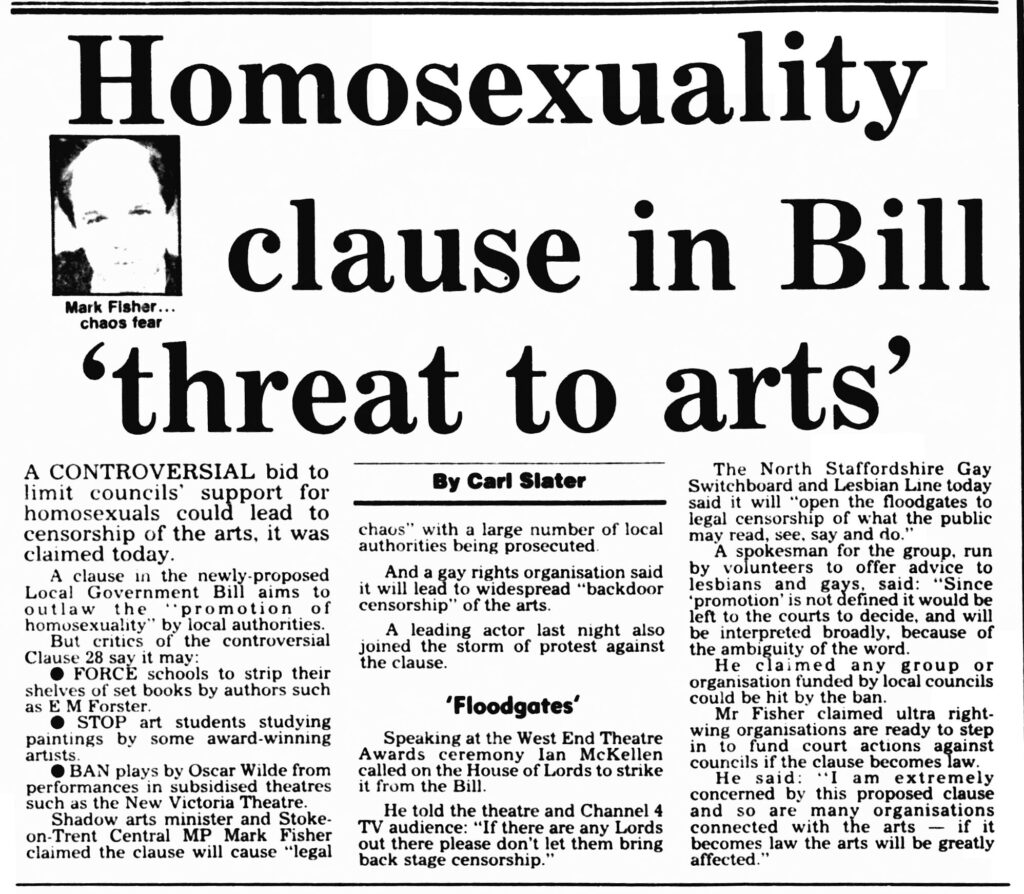
Evening Sentinel 25th January 1988 – Labour MP Mark Fisher Writes of His Concerns
Evening Sentinel February and March 1988
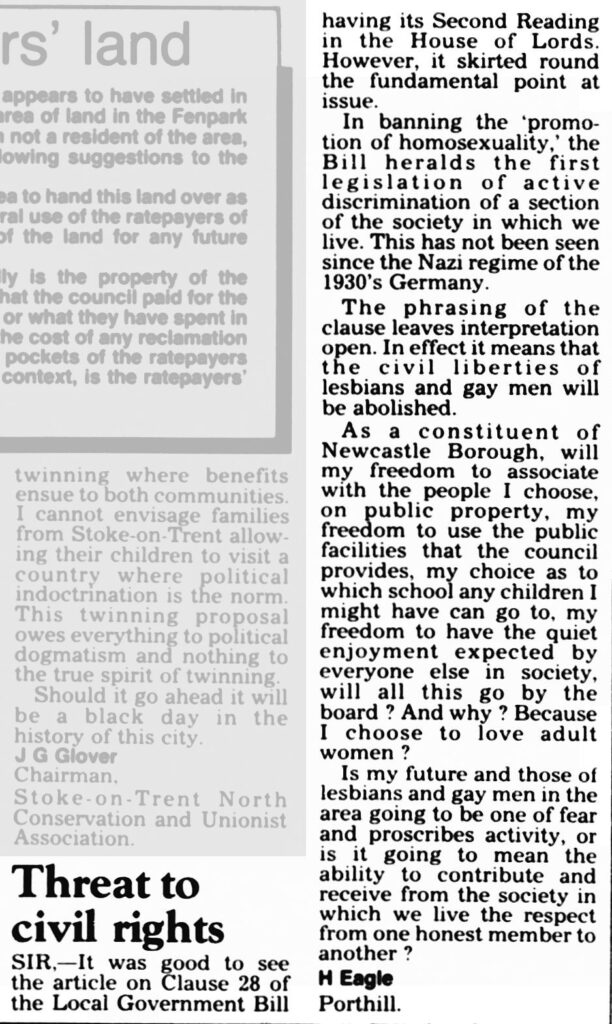
Evening Sentinel 17th Feb 1988 – A Letter of Concern
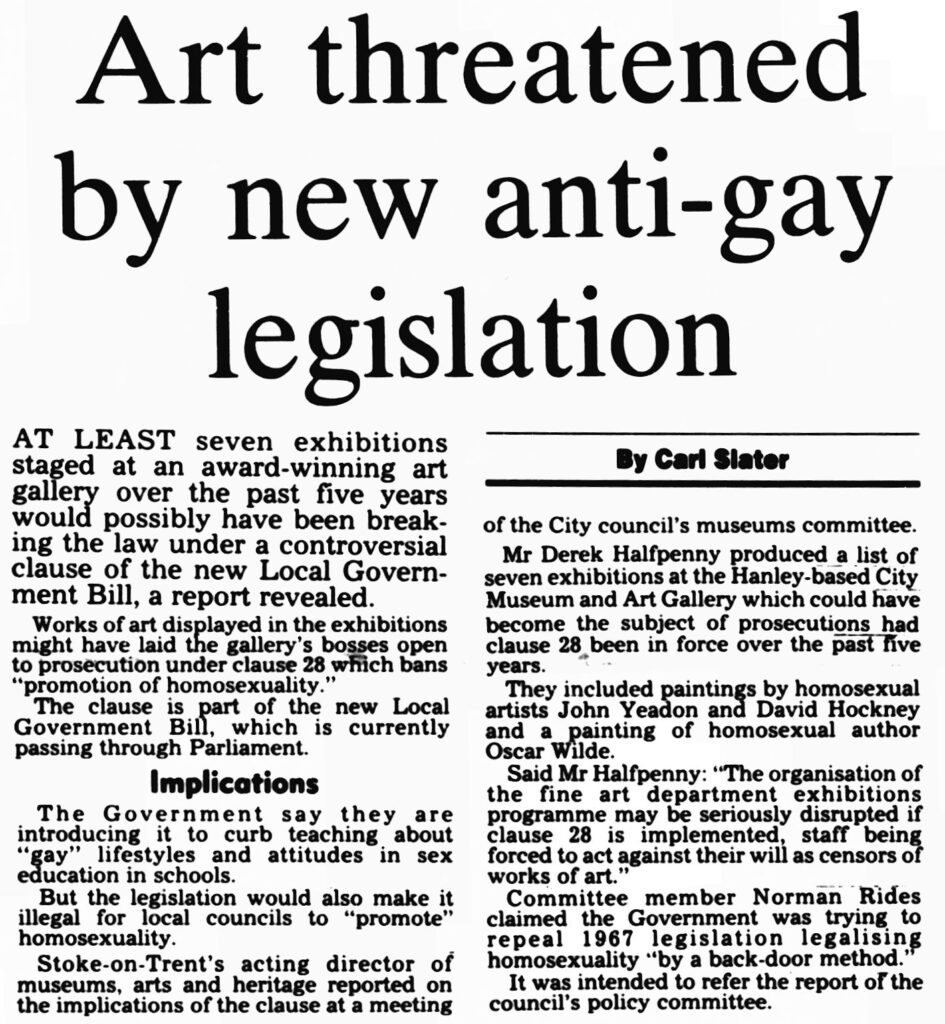
Evening Sentinel 1st March 1988 – The Director of Museums and Arts Raises Concerns

Evening Sentinel 11th March 1988 – Labour MP Mark Fisher Writes More About His Concerns
9th April 1988 – “First Ever Gay Demonstration in the Potteries”
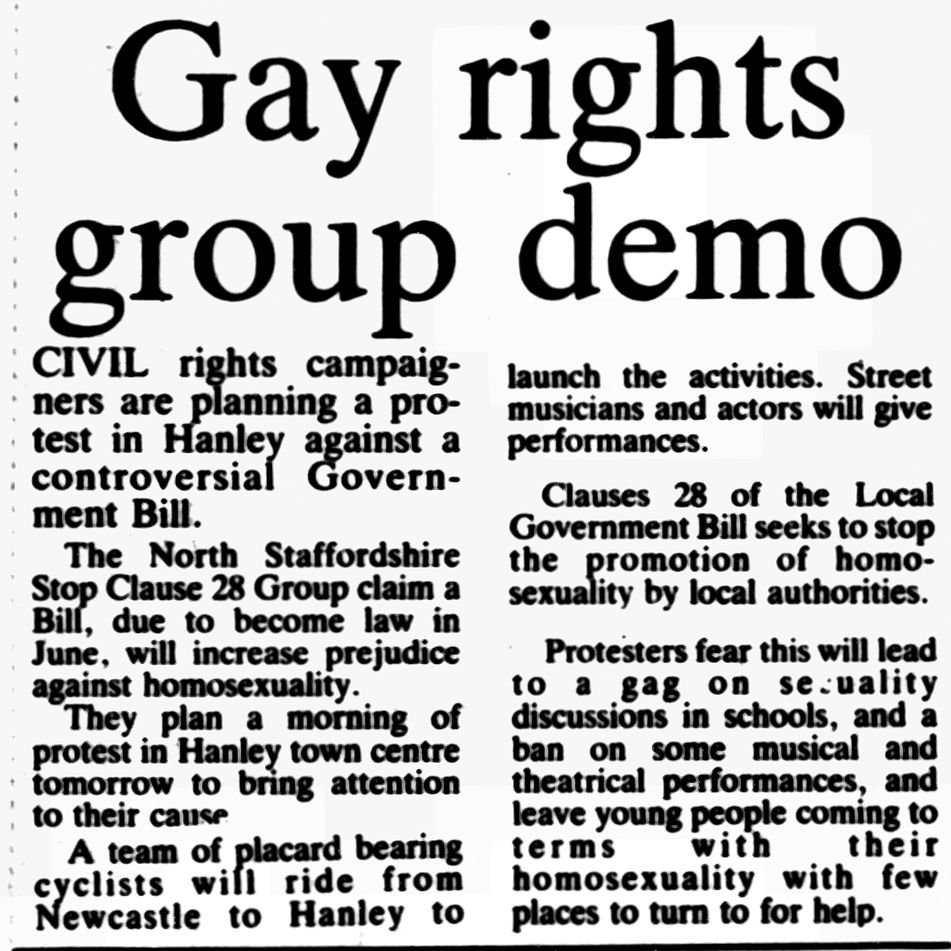
Evening Sentinel 8th Apr 1988 and 12th April 1988

Stop the Clause Exhibition
Plans to hold a protest exhibition at the New Vic Theatre created a clash between the theatre and the local council. The controversy highlighted that concerns about the wide ranging effects of Clause 28 were justified
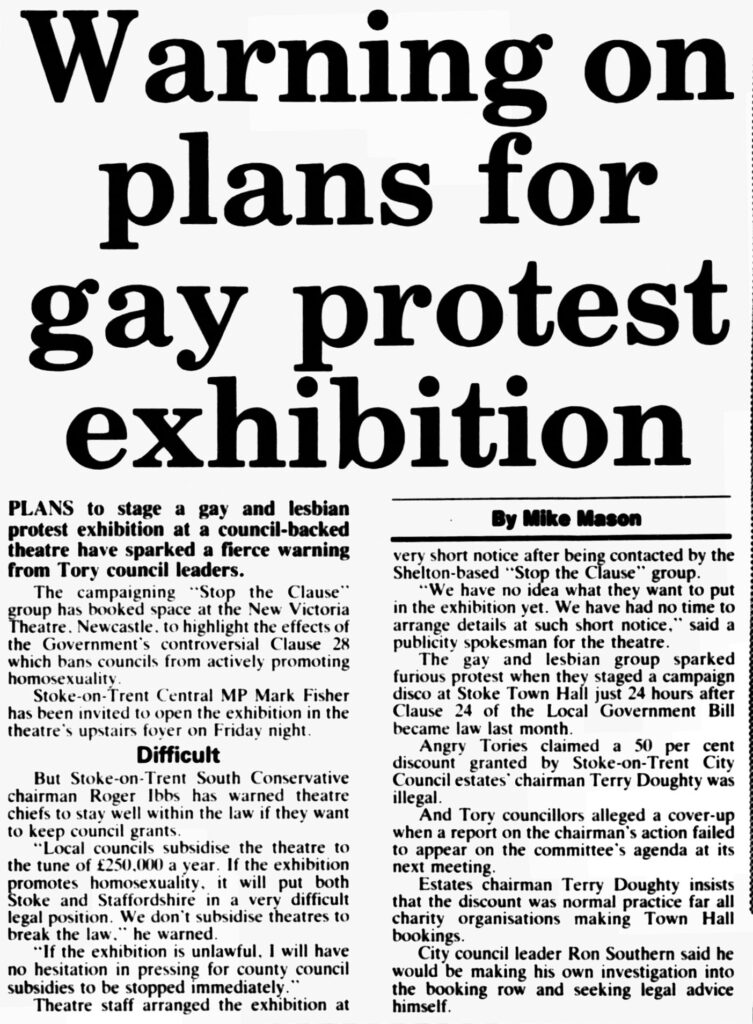
Evening Sentinel 15th Jun 1988

Evening Sentinel 17th June 1988
Stop the Clause Disco
There was further controversy over “Stop the Clause” plans to hold a fundraiser disco at the Stoke-on-Trent Town Hall. The group had been offered a 50% discount when the booking was made. Despite conservative opposition the discount was upheld.
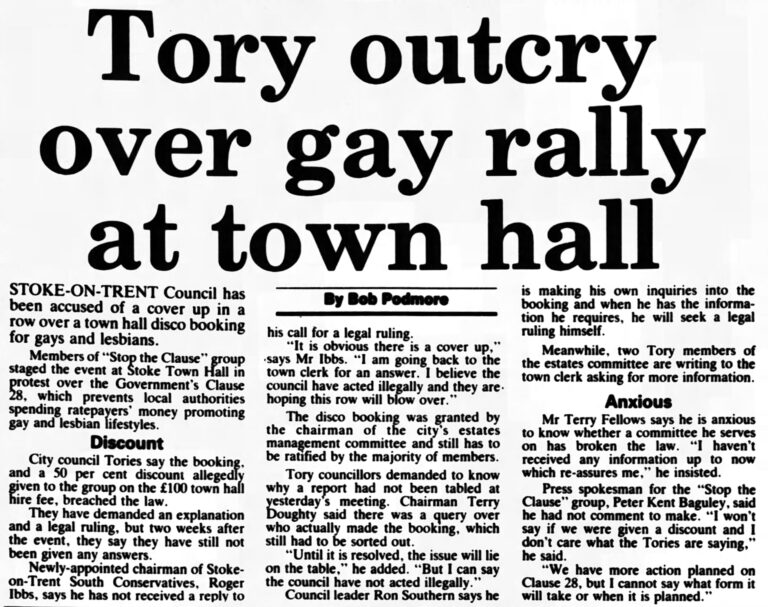
Evening Sentinel 8th Jun 1988
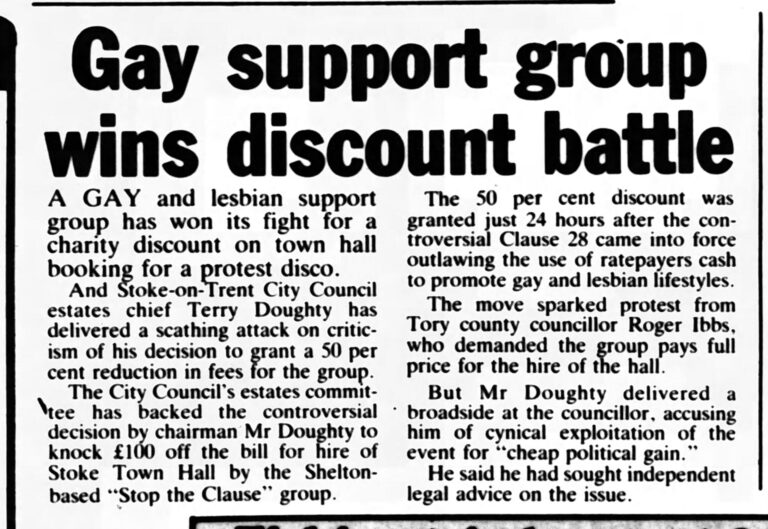
Evening Sentinel 12th Jul 1988
Copyright Notice
The newspaper cuttings featured here have been compiled by the posts author, Andrew Colclough, from online archives as part of his personal research into local LGBT+ history. Copyright belongs to the newspapers that published the articles. The news cuttings have been shared here by this post’s author, Andrew Colclough, on the basis of fair personal/non commercial use.
More LGBT+ History Pages




